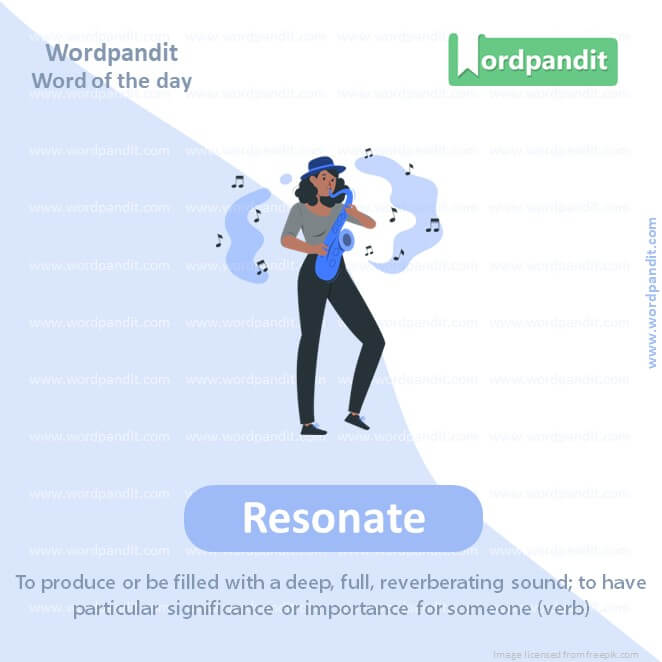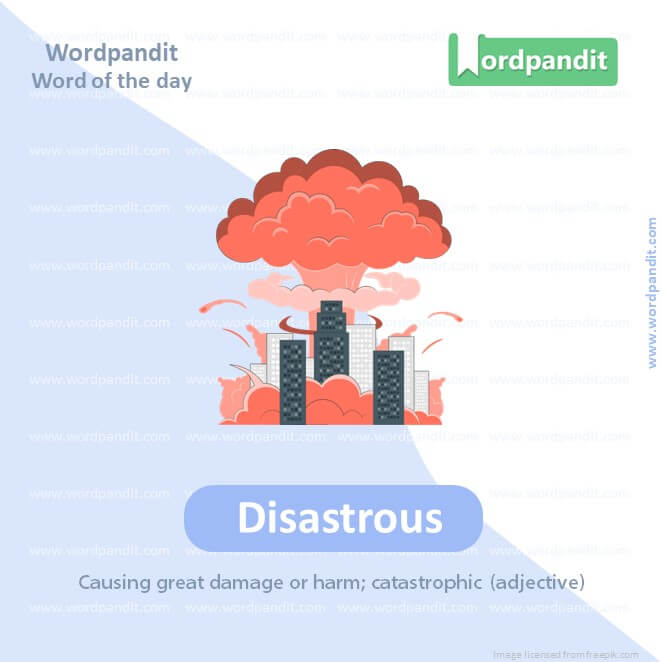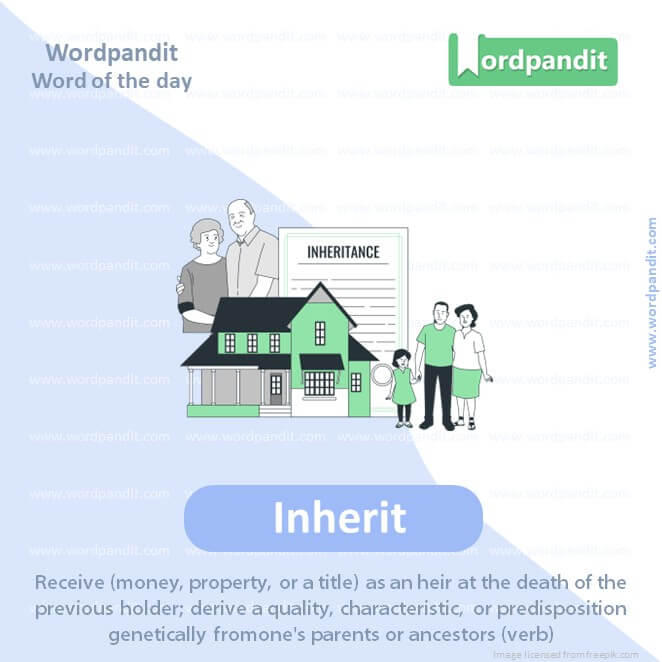Daily Vocabulary Words: List of Daily Used Words in Leading International Newspapers
Hi there. Welcome to this special section @ Wordpandit.
Our endeavour here is very simple: to highlight important daily vocabulary words, which you would come across in leading newspapers in the country. We have included the following newspapers in our selection:
• The New York Times
• The Washington Post
• Scientific American
• BBC
• The Guardian
• Psychology Today
• Wall Street Journal
• The Economist
We are putting in extensive work for developing your vocabulary. All you have got to do is be regular with this section and check out this post on a daily basis. This is your repository of words that are commonly used and essentially, we are posting a list of daily used words. Hence, this has significant practical application as it teaches you words that are used commonly in leading publications mentioned above.
Visit the website daily to learn words from leading international newspapers.

WORD-1: Threshold
CONTEXT: Today we may possibly be on the threshold of another of these rare change-making elections. Scepticism about that prospect is sensible.
SOURCE: Guardian
EXPLANATORY PARAGRAPH: Imagine you’re waiting to enter a room, but before you can go in, you have to step over a line on the floor. That line is like a “threshold.” It marks the entrance to the room, and you need to cross it to get inside. Threshold can also mean a limit or point where something starts or changes, like when the water level in a bathtub reaches the edge.
MEANING: The starting point for a new state or experience; the entrance or a doorway(noun)
PRONUNCIATION: THRESH-hohld
SYNONYMS: boundary, border, limit, edge, verge, brink
USAGE EXAMPLES:
1. He stood at the threshold of his new house, ready to start a new chapter in his life.
2. The company considered any decrease in profits below a certain threshold to be unacceptable.
3. The noise level crossed the threshold of tolerance, and the neighbors complained.
4. She felt like she was on the threshold of a great discovery.

WORD-2: Resonate
CONTEXT: There is, though, one more pivotal general election that ought to resonate today.
SOURCE: Guardian
EXPLANATORY PARAGRAPH: Have you ever hit a drum and felt the sound vibrate through your body? That’s like when something “resonates” with you. It’s when something feels so true or familiar that it echoes inside you, like hearing your favorite song or reading a story that touches your heart deeply.
MEANING: To produce or be filled with a deep, full, reverberating sound; to have particular significance or importance for someone (verb)
PRONUNCIATION: REZ-uh-neyt
SYNONYMS: reverberate, echo, strike a chord, ring true, touch a nerve, connect
USAGE EXAMPLES:
1. The message of the speech resonated with the audience and inspired them to take action.
2. His words resonated with me long after the conversation ended.
3. The melody of the song resonated in her mind throughout the day.
4. The story of overcoming obstacles resonated deeply with readers.
WORD-3: Protectionist
CONTEXT: His successor, Stanley Baldwin, wanted a policy U-turn in favour of protectionist tariffs on imports, so called another election to win a mandate.
SOURCE: Guardian
EXPLANATORY PARAGRAPH: Imagine you have a precious toy that you want to keep safe from anyone who might try to take it away. That’s like being “protectionist.” It means you want to protect something valuable, like your toys or your country’s jobs, by keeping it safe from outside influences.
MEANING: Supporting or practicing policies that protect domestic industries from foreign competition (adjective).
PRONUNCIATION: pruh-TEK-shuh-nist
SYNONYMS: defensive, safeguarding, shielding, insulating, preservative, conservative
USAGE EXAMPLES:
1. The government implemented protectionist measures to save jobs in the manufacturing sector.
2. The protectionist policies helped the local farmers compete with imported goods.
3. Some economists argue that protectionist trade policies can harm overall economic growth.
4. The protectionist stance of the company helped it maintain its market share.

WORD-4: Disastrous
CONTEXT: The result was disastrous for the Tories. They were reduced to 258 MPs, with Labour now on 191 and the divided Liberals 158. Only a coalition or a minority government was now viable.
SOURCE: Guardian
EXPLANATORY PARAGRAPH: Imagine trying to build a tower out of blocks, but it keeps falling down no matter what you do. That’s like something “disastrous.” It’s when things go really, really wrong, like a big mess or a problem that’s too big to fix easily.
MEANING: Causing great damage or harm; catastrophic (adjective).
PRONUNCIATION: dih-ZAS-truhs
SYNONYMS: catastrophic, devastating, calamitous, ruinous, catastrophic, tragic
USAGE EXAMPLES:
1. The earthquake had disastrous effects on the city, destroying buildings and leaving many homeless.
2. The decision to cut down the forest had disastrous consequences for the ecosystem.
3. The project turned out to be a disastrous failure, costing the company millions of dollars.
4. The storm had a disastrous impact on the crops, leading to widespread food shortages.

WORD-5: Illegitimate
CONTEXT: The new prime minister was the illegitimate son of a Moray ploughman.
SOURCE: Guardian
EXPLANATORY PARAGRAPH: Imagine you’re playing a game with rules, but someone decides to cheat and change the rules to win unfairly. That’s like something “illegitimate.” It means something that’s not allowed or accepted because it goes against the rules or laws, like a fake ticket to a movie or a ruler who took power unfairly.
MEANING: Not authorized by law; not in accordance with accepted standards or rules (adjective).
PRONUNCIATION: ih-li-JIT-uh-mit
SYNONYMS: unlawful, unauthorized, improper, illicit, illegitimate, wrongful
USAGE EXAMPLES:
1. The court declared the contract null and void because it was based on illegitimate terms.
2. The company faced legal action for its illegitimate business practices.
3. The dictator’s rise to power was considered illegitimate by many citizens.
4. The illegitimate use of force by the police was condemned by human rights organizations.
WORD-6: Inevitably
CONTEXT: the mere months that the first Labour government inevitably and rightly expected before it was brought down in October 1924.
SOURCE: Guardian
EXPLANATORY PARAGRAPH: Imagine watching a line of dominoes fall, one after another, until they all collapse. That’s like something “inevitably” happening. It means something that’s bound to happen, like the sun rising every morning or a balloon popping when you squeeze it too hard.
MEANING: In a way that cannot be avoided or prevented; as is certain to happen (adverb).
PRONUNCIATION: in-EV-i-tuh-bly
SYNONYMS: unavoidably, unavoidably, inexorably, certainly, unavoidably, predictably
USAGE EXAMPLES:
1. With his reckless driving, an accident was inevitably going to happen.
2. As technology advances, change is inevitably going to occur.
3. The passage of time inevitably leads to aging.
4. If you procrastinate, you’ll inevitably end up rushing to finish your work.

WORD-7: Inherit
CONTEXT: Starmer would also inherit a British state that is more comfortable with the rule of law and with checks and balances than the UK of a century ago.
SOURCE: Guardian
EXPLANATORY PARAGRAPH: Imagine your parents have a treasure chest full of goodies, and when they’re ready, they’ll pass it down to you. That’s like “inherit.” It means getting something valuable from someone else, like money or traits, without having to earn it yourself.
MEANING: Receive (money, property, or a title) as an heir at the death of the previous holder; derive a quality, characteristic, or predisposition genetically fromone’s parents or ancestors (verb)
PRONUNCIATION: in-HER-it
SYNONYMS: receive, acquire, obtain, come into possession of, be left, be bequeathed
USAGE EXAMPLES:
1. She inherited her grandmother’s antique jewelry collection.
2. He inherited the family farm after his father passed away.
3. The prince inherited the throne upon his father’s death.
4. She hoped to inherit her mother’s artistic talent.
WORD-8: Austerity
CONTEXT: Labour in 2024 would take power amid government austerity and in the wake of a pandemic.
SOURCE: Guardian
EXPLANATORY PARAGRAPH: Imagine you have a big box of toys, but your parents say you can only play with one toy at a time. That’s like “austerity.” It means living with less, like having fewer toys or not going out to eat as often, usually to save money or because there’s not enough to go around.
MEANING: Sternness or severity of manner or attitude; extreme plainness and simplicity of style or appearance; conditions characterized by severity, sternness, or asceticism (noun).
PRONUNCIATION: aw-STAIR-i-tee
SYNONYMS: frugality, simplicity, restraint, economy, thriftiness, modesty
USAGE EXAMPLES:
1. During the war, people had to adopt a lifestyle of austerity to conserve resources.
2. The government implemented austerity measures to reduce the national debt.
3. The monastery’s austerity reflected its commitment to a simple way of life.
4. The family lived with austerity to save money for their children’s education.
WORD-9: Centenary
CONTEXT: Labour’s centenary as a governing party is nevertheless an anniversary to be taken seriously by all who will follow the fortunes of a possible Starmer government.
SOURCE: Guardian
EXPLANATORY PARAGRAPH: Imagine a big birthday party where everyone celebrates because someone turned 100 years old. That’s like a “centenary.” It’s a special celebration that happens once every 100 years, marking a hundred years of something happening or existing, like a hundred years since a school was founded or since a famous event occurred.
MEANING: Relating to or marking the 100th anniversary of something (adjective/noun).
PRONUNCIATION: sen-TEEN-uh-ree
SYNONYMS: centennial, hundredth anniversary, century
USAGE EXAMPLES:
1. The town celebrated its centenary with a parade and fireworks.
2. The university held a centenary ceremony to honor its founding.
3. The museum exhibit commemorates the centenary of the artist’s birth.
4. The centenary of the end of World War I was marked with solemn ceremonies.
WORD-10: Succinctness
CONTEXT: Expect a clutch of books, including Peter Clark’s The Men of 1924, Jon Cruddas’s A Century of Labour and David Torrance’s The Wild Men, all written with wit and commendable succinctness and most featuring photos of the now all but forgotten Labour figures who first trod the corridors of power: Arthur Henderson, JR Clynes, Jimmy Thomas, Philip Snowden and MacDonald himself.
SOURCE: Guardian
EXPLANATORY PARAGRAPH: Imagine you have to tell a story in just a few words because you’re running out of time. That’s like “succinctness.” It means being brief and to the point, saying only what’s necessary without extra details or long explanations.
MEANING: The quality of being expressed clearly and in few words; conciseness (noun).
PRONUNCIATION: suhk-SINGKT-nis
SYNONYMS: brevity, conciseness, terseness, pithiness, compactness, clarity
USAGE EXAMPLES:
1. The professor appreciated the succinctness of the student’s answer.
2. The job advertisement emphasized the need for succinctness in writing skills.
3. The politician’s speech was admired for its succinctness and clarity.
4. The editor praised the writer’s succinctness in conveying complex ideas.
Vocabulary Daily Use
In the fascinating world of language learning, we often concentrate on taking giant leaps, but the real magic lies in the small steps of ‘vocabulary daily use’. These frequently used words and phrases form the backbone of practical communication and understanding. Therefore, mastering ‘vocabulary daily use’ is a crucial element in achieving language fluency.
To effectively learn ‘vocabulary daily use’, one needs to venture beyond the traditional textbook resources. The real essence of these words unveils itself in everyday exposure and interactions. Engaging with a variety of material like novels, magazines, newspapers, podcasts, films and digital content deepens the understanding of ‘vocabulary daily use’. Immersion in these contexts yield natural, everyday language that bridges the gap between the classroom and the real world.
The journey of mastering ‘vocabulary daily use’ necessitates the integration of innovative memory techniques. Flashcards and the Leitner System aid in embedding these words into your long-term memory by promoting active recall. Additionally, the use of mnemonic devices, which allow you to associate ‘vocabulary daily use’ with personal and familiar narratives, can enhance your ability to remember and recall these words.
Moreover, it’s important to remember that ‘vocabulary daily use’ isn’t just about comprehension- it’s about practice and active usage. Incorporate these words in your day-to-day communication and social interactions. This not only solidifies your understanding but also accelerates learning and internalization of ‘vocabulary daily use’.
In a nutshell, mastering ‘vocabulary daily use’ is a continual process that demands exposure, creative learning strategies and assertive practice. The commingling of these tactics brews the perfect formula that allows learners to seamlessly integrate ‘vocabulary daily use’ into their linguistic repertoire. And with that, they can navigate the nuances of language with confidence and ease.













